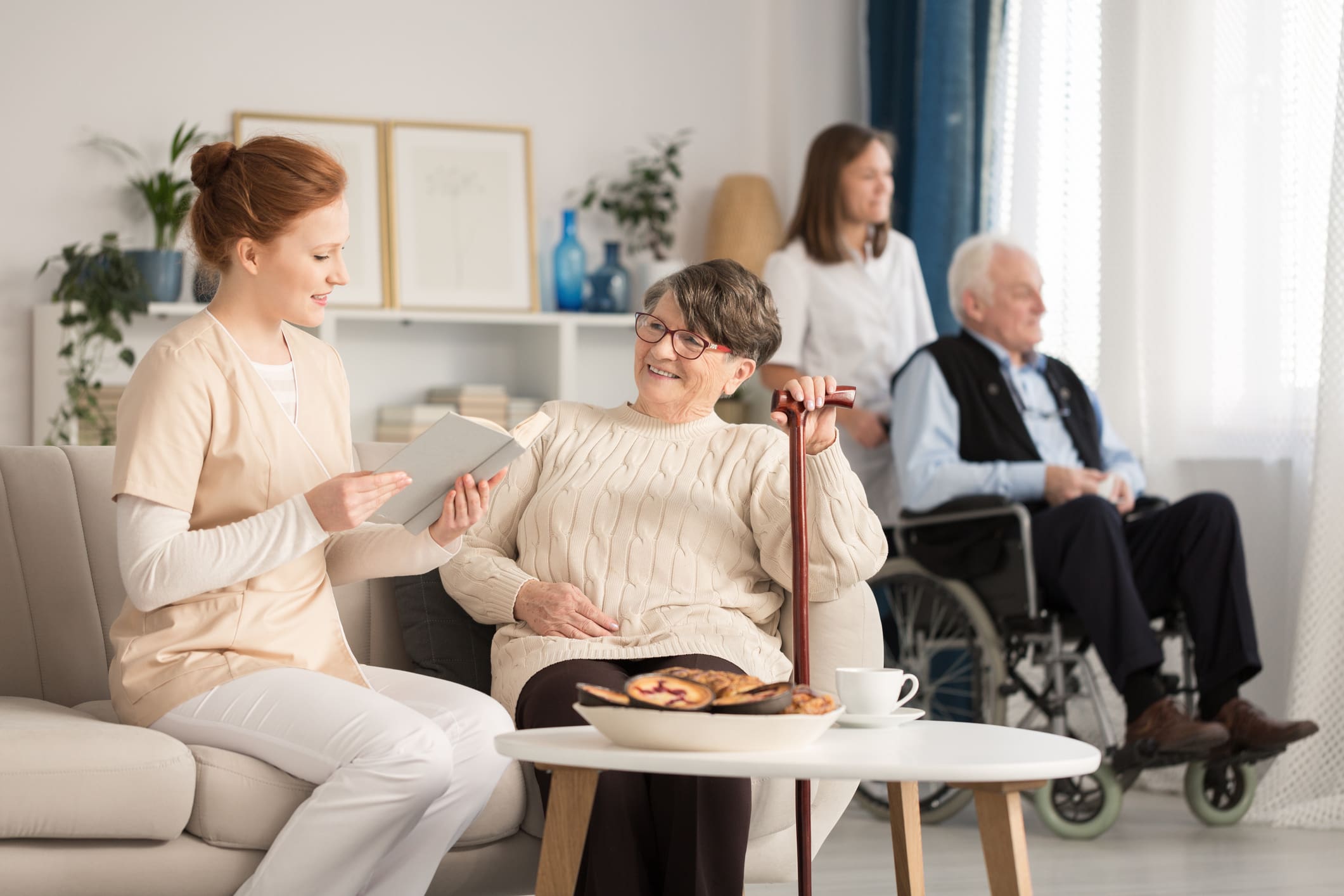If your spouse’s health declines, it’s natural to take on the role of their primary caregiver. A study showed that out of the 47.9 million caregivers in the United States, about 5.7 million are caring for their spouse or partner.
Caregiving is a compassionate job where you’re doing everything you can to provide your spouse with a fulfilling life while attending to their needs. Much of this work is unseen by others and unpaid. Caregivers of spouses may also try to do everything on their own with little or no support.
Over time, caregivers can experience burnout if they don’t receive the help they need, too. It’s important to learn how to recognize spousal caregiver burnout and how you can get support.
What Is Caregiver Burnout?
Caregiver burnout happens when a caregiver is so fatigued that it affects their physical, mental, and emotional well-being.
When a caregiver is burned out, their quality of care can slip, as can their attitude toward their role as caregiver. Often, caregivers may experience the following issues that can lead to burnout:
- Comparison. Caregivers may compare themselves to other caregivers and think they’re not as good at their role as others.
- Guilt. No matter how much a caregiver is doing for their partner, they may not think it’s ever enough. Whenever they do anything for themselves, they often feel guilty because they think they’re being selfish.
- Expectations. When a caregiver’s spouse’s health declines, it may be a natural progression of their illness. However, the caregiver may see this as a reflection of their quality of care and become discouraged.
Physical Challenges of Spousal Caregiving
When you’re caring for your spouse, you’re likely thinking about helping with medication management, attending to other aspects of their health care, and providing opportunities for them to do things they’ll enjoy.
However, you may also provide assistance with the day-to-day tasks that your spouse used to take care of on their own. These tasks include:
- Getting and out of bed
- Getting dressed
- Bathing
- Using the bathroom
- Walking
Helping your loved one with these tasks can be physically challenging if they have balance or mobility issues.
In addition to these everyday challenges, you’ll also likely be in charge of transporting your loved one to and from medical appointments. When all of the responsibilities of caregiving are on you, it can easily cause stress and exhaustion.
Emotional Impacts of Caregiver Burnout
Being a caregiver is a selfless, around-the-clock job. Many caregivers are always looking to how they can do better, provide more care, or be there more for their loved one when they’re already doing an admirable job. This is likely the case when you’re taking care of your spouse because you want nothing but the best for them.
However, because you are so focused on their care and well-being, you may not be attending to your own well-being with as much tenacity. This emotional impact can affect nearly every aspect of your life.
Signs of caregiver burnout include:
- Withdrawing from friends and family
- Experiencing stress, anxiety, or depression
- Loss of interest in your hobbies
- Poor sleep schedule
- Feeling down or irritable
- Change in appetite
Unfortunately, burnout can progress to feelings of resentment or frustration toward your loved one, which can affect the quality of care you provide.
Whether you recognize one or several of these symptoms, it’s important to remember that you’re not alone and that burnout can happen to anyone.
How To Get Help for Spousal Caregiver Burnout
Seeking different aspects of support can help you prevent or get out of caregiver burnout.
- Join caregiving support groups so you can be around caregivers feeling and experiencing similar struggles to your own.
- Seek therapy for professional support.
- Find support from family members or friends.
- Schedule rest days when you have free time to relax and recharge.
Learn more about upcoming caregiver support group events on:
October 14, 2025
November 11, 2025
December 9, 2025
Respite Care
When you’re recovering from burnout, you may need to schedule breaks on a regular basis. You’ll need to find care for your loved one while you can take some well-deserved time to rest. Respite care may be the answer you need.
Respite care is short-term care for your loved one. They can stay for a brief period at a senior living community, visit an adult day center, or a professional can visit your home to provide respite care. If your break is multiple days, you’ll likely want to opt for your loved one to stay at a senior living community.
You’ll have peace of mind that your loved one is in a safe environment where compassionate professionals will provide your loved one with the care they need.
In addition to receiving care, your loved one will also experience the amenities and services at the community. They may participate in activities, take a class, and enjoy the campus.
Quartet Senior Living provides respite care so caregivers like you can get the rest you need. Your loved one will flourish with the top-notch care, robust programming, and delicious dining during their stay with us.

Quartet Senior Living Is Here for Caregivers & Their Loved Ones
As you continue to care for your loved one, you may find that their needs exceed what you can take care of. You may want to look into other options where they can get the care they deserve in a compassionate and friendly environment. Assisted Living or Memory Care at Quartet Senior Living can provide your loved one with the care they need and provide options so you and your spouse can live together.
“We see so many Quartet residents benefiting from these living options each day. They don’t have to worry about additional moves or being apart from their spouse, and instead get to focus on choosing enjoyable activities to try, focusing on wellness, and truly living their best lives, ” said Amy Gutknecht, Senior Living Consultant.
As a caregiver, sometimes it feels like you’re going it alone. That’s where we come in to help. Contact us today to schedule a visit to learn more about the welcoming environment Quartet has to offer you and your spouse.

